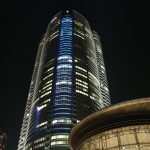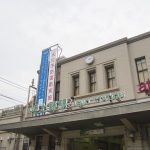Nestled at the heart of Tokyo, Shinjuku stands as a dynamic and multifaceted district that beckons to foreign tourists with its vibrant energy, diverse attractions, and a kaleidoscope of experiences. Renowned as one of Tokyo’s most iconic and bustling neighborhoods, Shinjuku seamlessly weaves together the traditional and the modern, creating a captivating urban landscape that leaves an indelible mark on those who venture into its bustling streets.
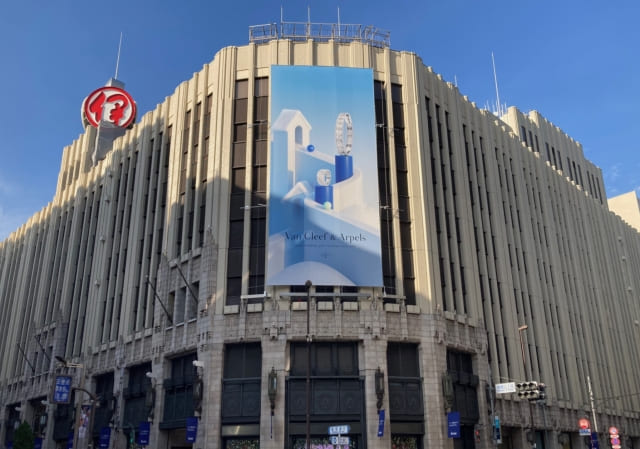
Shinjuku stands as one of the most renowned shopping areas and tourist destinations in Tokyo, boasting a diverse array of attractions and charms.
Shinjuku is a shopping paradise with major department stores and specialty shops lining its bustling streets. In the vicinity of Shinjuku Station, you’ll find prestigious department stores like Isetan, Takashimaya, and Odakyu Department Store, offering a collection of high-end brands and the latest fashion items. In areas like Shinjuku Subnade and Kabukicho, there is a concentration of fashion brands and accessory shops catering to a younger audience, where you can discover stylish items. The underground shopping malls and commercial facilities in Shinjuku add to the variety, allowing you to enjoy shopping even on rainy days.
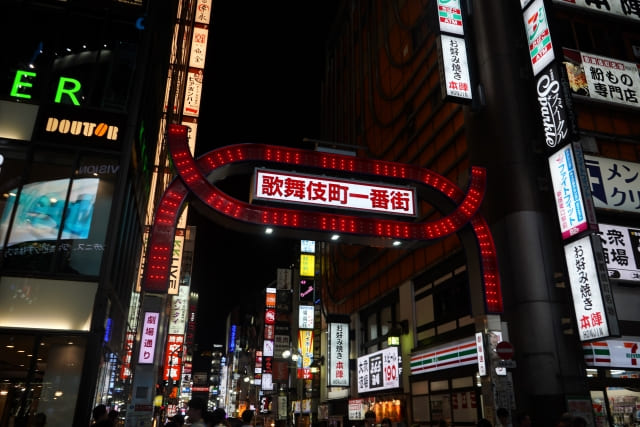
Kabukicho is a bustling entertainment district located in Shinjuku, Tokyo, renowned for its vibrant nightlife and diverse entertainment options. As one of Japan’s most famous red-light districts, it stands as a symbol of urban dynamism with its towering skyscrapers, numerous shops, restaurants, and bars.
Kabukicho is characterized by its colorful neon signs and flashy billboards, illuminating the streets with bright lights as night falls. The area is home to a variety of establishments, including multinational bars, clubs, karaoke boxes, hostess clubs, and adult entertainment venues, offering a wide range of entertainment for visitors.
Clubs and live houses in Kabukicho host performances by singers and dancers, creating an enticing atmosphere for music enthusiasts and those seeking a lively nightlife experience. Additionally, Kabukicho features cinemas and a well-developed shopping area, ensuring that the district remains lively and bustling 24 hours a day.
Beyond its reputation for nightlife, Kabukicho has strong ties to traditional Japanese performing arts, such as kabuki and theater. The Kabukicho Theater, among others, provides opportunities to enjoy traditional and contemporary Japanese entertainment, attracting both tourists and local residents.
Kabukicho is a symbol of diversity and vitality, representing the vibrant nightlife of Shinjuku, drawing people from all over the world to experience its unique energy and entertainment offerings.
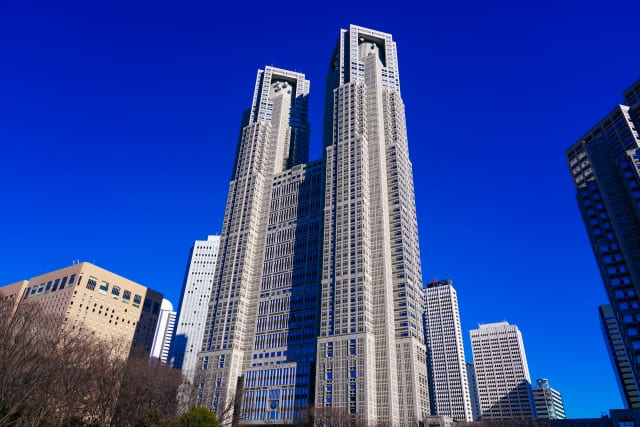
The Tokyo Metropolitan Government Building is the administrative headquarters for Tokyo, located in Shinjuku Ward. This iconic structure features twin towers standing at approximately 243 meters in height, offering a breathtaking panoramic view of Tokyo from its observation deck. Illuminated beautifully at night, the building becomes a captivating spectacle, and its night view is particularly enchanting for visitors. The Tokyo Metropolitan Government Building serves as the central hub for the city’s governance, housing both the metropolitan assembly and administrative functions. While boasting a modern design, the building also reflects traditional Japanese aesthetic sensibilities. For visitors, it is not only a landmark symbolizing Tokyo but also a popular tourist spot, providing the added attraction of a free observation deck with stunning views.
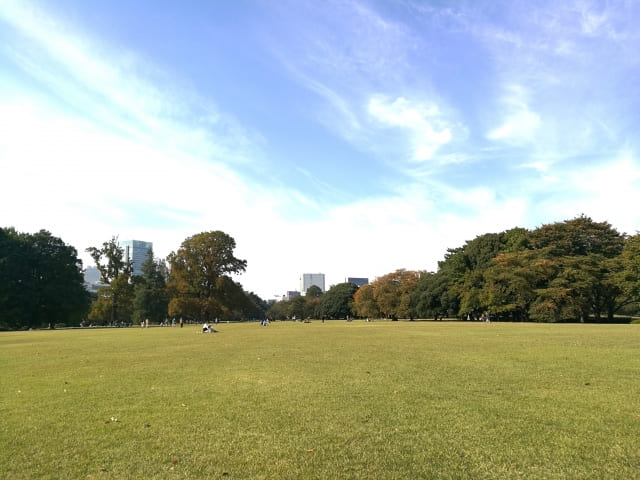
Shinjuku Gyoen, located in Shinjuku, Tokyo, is a beautiful Japanese garden with an expansive area featuring diverse plants and landscapes. The garden showcases different faces throughout the seasons, particularly renowned for the beauty of cherry blossoms in spring and vibrant autumn foliage. Various types of flowers and trees are planted, providing visitors with the opportunity to enjoy the changing seasons.
The garden boasts historic architectural structures, including three distinct styles of gardens: French, English, and Japanese. Each area offers a different ambiance, allowing visitors to appreciate various garden designs.
With its vast area, Shinjuku Gyoen provides walking paths and ponds for strolling and relaxation. Visitors can unwind in nature, escaping the hustle and bustle of the city.
The garden seamlessly blends traditional elements of Japanese gardens with modern design, offering a harmonious fusion of classical and contemporary atmospheres.
Shinjuku Gyoen is beloved by many for being a serene oasis in the heart of the city, allowing people to fully enjoy nature despite its urban location.
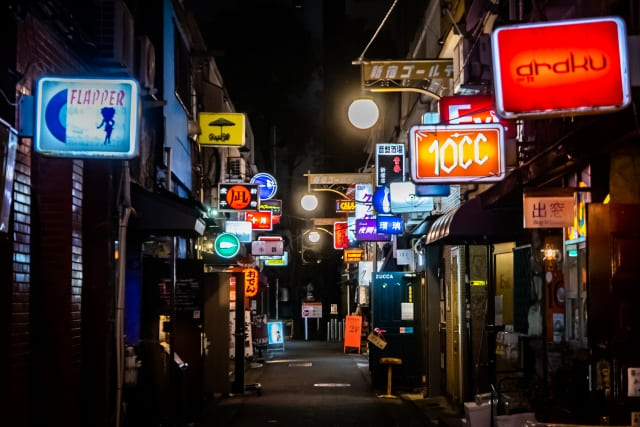
Golden Gai features narrow alleyways adorned with small bars, each exuding a nostalgic Showa-era ambiance. This area is a haven for those seeking intimate izakayas and bars.
Shinjuku Grand Tower is a high-rise building housing commercial facilities and restaurants. The view from the observation deck is breathtaking, offering a stunning panorama of the surroundings.
Shinjuku is rich in cultural offerings, with venues like the New National Theatre and NTT InterCommunication Center hosting stage arts and concerts. The district also boasts numerous cinemas, cafes, bookstores, allowing visitors to immerse themselves in various cultural experiences.
In conclusion, Shinjuku’s diversity and energetic ambiance make it a captivating destination for tourists both domestically and internationally.
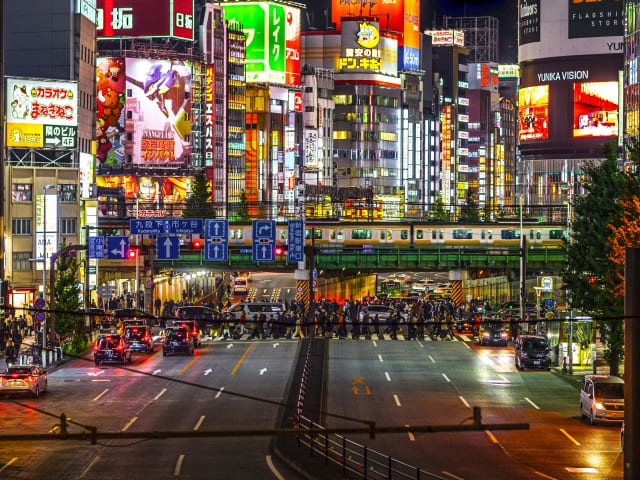
Shinjuku is a culinary haven offering a diverse range of dining experiences. From upscale restaurants to casual cafes and izakayas, the area caters to a wide array of tastes.
Around Shinjuku Subnade, you’ll find sophisticated Italian, French, and Japanese restaurants, creating an elegant atmosphere perfect for adult dinner outings. As night falls, chic bars add to the allure of the dining scene.
Kabukicho, known for its vibrant nightlife, offers a multinational culinary experience with Korean, Chinese, and various international eateries. The area boasts a mix of casual and upscale establishments, allowing you to enjoy a variety of cuisines at reasonable prices.
The commercial facilities and buildings in Shinjuku house diverse dining options, including restaurants and food courts. This provides convenient and high-quality dining choices for busy professionals and shoppers. The cuisine spans from ramen and sushi to hamburgers, catering to a broad spectrum of tastes.
Shinjuku is also home to unique cafes, such as art-themed cafes, cat cafes, and owl cafes. These establishments offer not only delicious drinks and sweets but also a unique and enjoyable atmosphere, making them popular destinations for locals and visitors alike.
In summary, Shinjuku’s dining scene boasts diversity and quality, ensuring a satisfying culinary experience for all who visit.
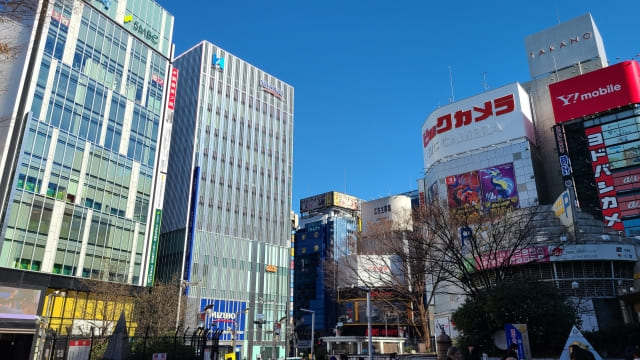
Shinjuku is located in the heart of Tokyo, offering a diverse living environment with numerous appealing features.
First and foremost, Shinjuku serves as a major transportation hub, centered around JR Shinjuku Station where various railway lines converge. This makes commuting and studying highly convenient, providing excellent access both within the city and beyond. The area around Shinjuku Station is dotted with headquarters of major companies and commercial facilities, making it a bustling business district.
In terms of residential environments, Shinjuku Ward encompasses a variety of housing options. Amidst the commercial and office buildings, there are residential areas that provide a calm and comfortable living atmosphere. Additionally, there are numerous rental apartments and condominiums catering to diverse lifestyles, ensuring high levels of convenience in daily life.
Shinjuku is renowned as a hub for shopping and entertainment, boasting numerous commercial facilities and tourist attractions. Natural elements, such as Shinjuku Gyoen National Garden and Okubo Park, contribute to a balance between urban life and green spaces.
Public safety in Shinjuku is generally excellent, creating an environment where residents can feel secure in their daily lives. Furthermore, the presence of well-equipped medical facilities, schools, and public amenities ensures comprehensive support for various aspects of life.
In summary, Shinjuku provides a harmonious living environment with a multitude of elements, offering easy access to work, daily life, and entertainment. It stands as an attractive area for residents due to its diverse and accessible features.
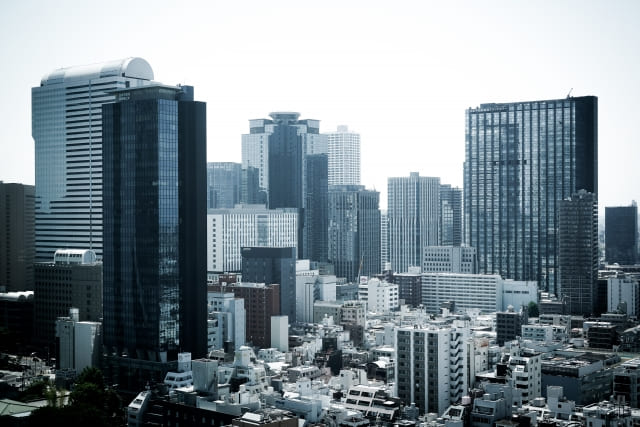
The history of Shinjuku dates back to the Sengoku period (Warring States period) with its roots as a rural area. During the Edo period, Shinjuku became home to the Shinjuku Gyoen estate and developed into a town with samurai residences and merchant inns. Notably, it is said to be the birthplace of the samurai Nishimura Sannosuke, who served under the warlord Toyotomi Hideyoshi.
In the Meiji era, Shinjuku positioned itself as a central area within Tokyo City, attracting government institutions and businesses. Shinjuku Ward Office and Shinjuku Central Park were established, solidifying its role as a hub within the ward.
The 1920s witnessed a significant expansion of Shinjuku Station, becoming a major transportation hub for Tokyo. Subsequent redevelopments before and after World War II led to the construction of commercial buildings and offices, turning Shinjuku into one of Tokyo’s major commercial districts.
In the 1960s, as Tokyo prepared for the Olympics, urban redevelopment projects accelerated. High-rise buildings, hotels, and commercial facilities emerged, and Shinjuku evolved into a secondary city center.
Shinjuku is renowned for its vibrant nightlife, entertainment, and shopping districts, attracting tourists with its diverse array of cafes, restaurants, shops, and entertainment venues. Today, Shinjuku seamlessly blends its rich history with contemporary developments, creating a multifaceted and dynamic urban area.
Medical institution
In the vicinity of Shinjuku Station, there are numerous healthcare institutions offering advanced medical services and facilities. Various medical facilities, ranging from general internal medicine, surgery, and pediatrics to specialized clinics, cater to the diverse healthcare needs of the local residents and visitors.
Prominent hospitals include large comprehensive hospitals and specialized medical centers covering a wide range of fields such as cancer treatment, cardiac care, orthopedics, and obstetrics and gynecology. These hospitals are equipped with state-of-the-art medical technologies and facilities, catering to both domestic and international patients.
Shinjuku also boasts well-established clinics specializing in cosmetic surgery and dental care, providing services such as aesthetic procedures and dental treatments.
Furthermore, there are clinics focused on preventive healthcare and health check-ups, contributing to the promotion of community health. There are healthcare facilities specifically designed for foreigners, offering multilingual support and international staff to address the diverse needs of patients.
Overall, the healthcare institutions around Shinjuku Station demonstrate a wide range of specialties and provide high-quality medical services.
educational institution
Shinjuku is home to many educational institutions, which are known for their high educational standards and rich curriculum.
Meiji University, headquartered in Shinjuku, has a variety of faculties and majors. The international learning environment is attractive.
Waseda University, a famous private university, also has a campus in Shinjuku. It is known for its wide range of academic fields.
Musashino Art University is a university that focuses on the arts and also has a campus in Shinjuku. Popular with students interested in art and design.
Shinjuku is dotted with many vocational schools and preparatory schools that provide specialized education in various fields.
There are many public elementary and junior high schools within Shinjuku Ward, which are responsible for the education of local residents. It offers excellent facilities and educational programs.
These institutions offer high standards of education in a wide range of academic fields and cater to a diverse student population.
Transportation facilities
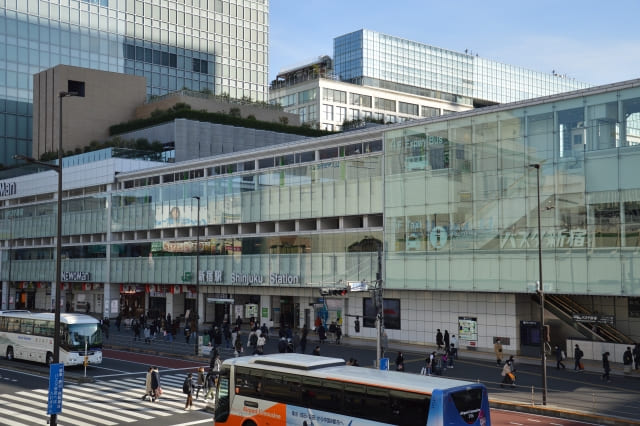
Shinjuku Station, located in Shinjuku Ward, Tokyo, is Japan’s largest railway station and a major transportation hub. It serves as a focal point for multiple railway lines, including the Chuo Line, Sobu Line, Yamanote Line, Odakyu Line, and Keio Line, providing convenient access to the greater Tokyo area. Shinjuku Station is also a hub for Shinkansen (bullet train) services, connecting with the Tokaido Shinkansen and Hokuriku Shinkansen lines. Additionally, the Tama Monorail operates from Shinjuku Station, offering smooth access to Haneda Airport. The station’s vicinity is characterized by towering buildings and commercial facilities, hosting offices and popular tourist attractions. With its strategic location and extensive rail network, Shinjuku Station stands as one of Japan’s bustling and vibrant areas, drawing visitors from both domestic and international destinations.
Shinjuku Station boasts one of Japan’s most intricate railway networks, serving as a major hub where various train lines converge. Representative JR lines include the Chuo Line, Sobu Line, and Yamanote Line, providing access to both central Tokyo and its suburbs. The Yamanote Line, in particular, circles through key areas of Tokyo. Private railway lines like the Odakyu Line and Keio Line connect Shinjuku to western Tokyo efficiently. Shinjuku is also a major hub for Shinkansen (bullet train) services, with the Tokaido Shinkansen and Hokuriku Shinkansen departing and arriving, offering high-speed transportation nationwide. Additionally, the Tama Monorail provides access from Shinjuku to Haneda Airport, adding to the diverse range of transportation options. The complexity of Shinjuku Station’s railway network highlights its vital role as a central transportation hub, offering commuters and travelers a wide array of choices.
Shinjuku Station is served by numerous railway lines, making it a major transportation hub in Tokyo. Some of the prominent lines include Chuo Line, Sobu Line, Yamanote Line, Shonan-Shinjuku Line, Saikyo Line, Toei Shinjuku Line, Toei Oedo Line, Tokyo Metro Marunouchi Line, Odakyu Line, Keio Line, Keio New Line, Tokyu Odakyu Direct Line, Tokaido Shinkansen, Hokuriku Shinkansen, and Tama Monorail. This extensive network connects Shinjuku to various destinations within Tokyo and beyond, facilitating convenient travel for commuters and visitors alike.
real estate value
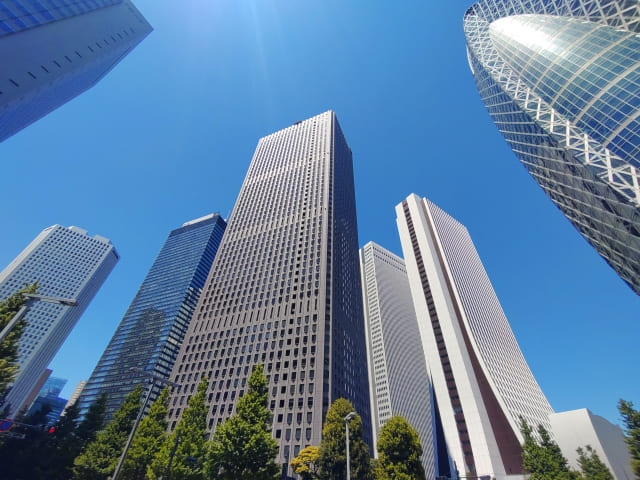
Shinjuku is a central part of Tokyo, characterized by numerous commercial facilities, office buildings, entertainment venues, and tourist attractions. Consequently, real estate in this area tends to hold high value.
The property prices in Shinjuku vary depending on factors such as location, the completeness of facilities, and the convenience of the surroundings. For instance, areas around Shinjuku Station and Nishi-Shinjuku are renowned as business districts with tall buildings and major corporations, resulting in the presence of many commercial facilities and high-end residences. It is common for the prices of land and properties in these areas to be relatively high.
Moreover, districts like Kabukicho and around Shinjuku West Exit are bustling with tourists and serve as entertainment hubs with numerous accommodations and dining establishments. These areas are also popular and witness relatively higher real estate prices.
Shinjuku is a major transportation hub, ensuring excellent access to the city center. As a result, it is known as a convenient and comfortable residential area. Therefore, there is demand for residential properties, contributing to the vibrancy of the real estate market.
In summary, Shinjuku, being a multifaceted urban center with a wide range of facilities and services, boasts high real estate value, and its market extends across various segments.

